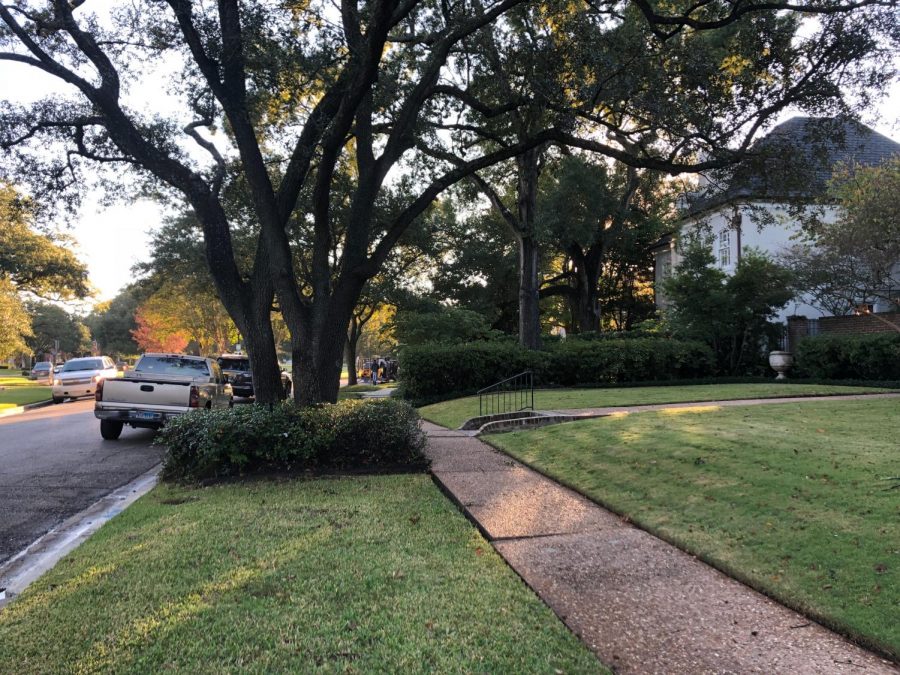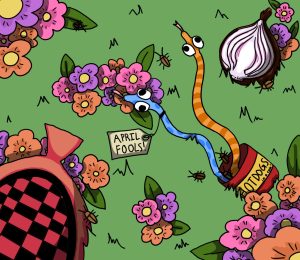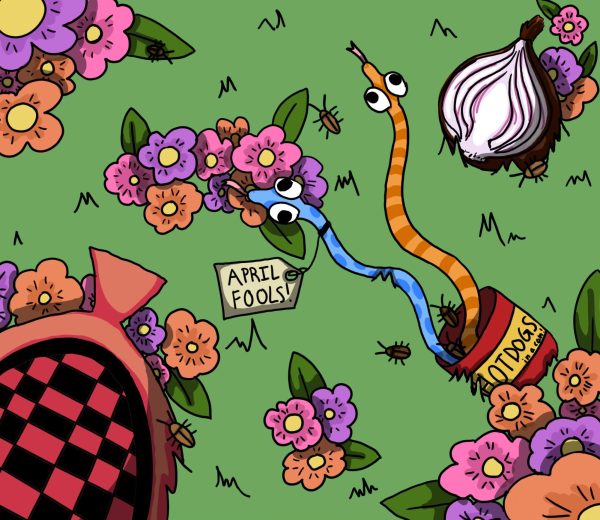Killer bees move to River Oaks, threaten students and residents
This tree is one of many housing a hive of Africanized bees, which have recently settled in River Oaks.
November 3, 2018
As small and nimble as they might appear, killer bees are taking the streets of River Oaks by swarm.
Africanized bees, colloquially known as “killer bees” or “feral bees,” are hybrids of the African honey bee and various European honey bees. These honey-makers have heightened defensive behavior, making them dangerous to humans. In a 1957 effort to increase honey production, 26 swarms of these bees escaped quarantine in Brazil. Sixty-one years later, the aggressive insects have settled in the School’s vicinity, neighboring several SJS students.
Three doors down from junior Cross Kennedy’s home on Reba Drive lay a recently discovered hive, just one of more than half a dozen killer bee hives located in Houston in the past two weeks. The home, cloaked in black-and-yellow caution tape, accommodated a hive in a tree in its front yard until exterminators could remove it.
“When I first found out about the bees on my street, I thought I wasn’t going to be able to walk to school anymore because it would be too risky,” Kennedy said. “The idea of a bee attack was scary, but I’m so glad the hive was removed.”
Other River Oaks residents were not as lucky as Cross. According to the Houston Chronicle, a mother was jogging on her normal route on Ella Lee Lane near Briarwood Court on Sept. 25 when a swarm attacked her, leaving her with approximately 35 stings and welts all over her body and scalp. Fortunately, she survived after a quarter-mile sprint from the bees and a traumatic trip to the emergency room.
After the attack, River Oaks residents and SJS families are more alert when outdoors. Sophomore Campbell Lee, who also lives on Reba, said that her mom researched the Africanized bees when she learned that they had settled on their street.
“I was really scared at first because I am mildly allergic to bees, but I’m not too worried anymore because the exterminator and the police did a ton to help out,” Campbell said.
Whether you live near killer bees or not, if you ever encounter a bee rampage, experts suggest you avoid swatting the bees, run away as quickly as possible and find shelter immediately.


























AJB • Nov 3, 2018 at 7:33 PM
The mother you reference is SJS 2002 and her son is a first grader at SJS